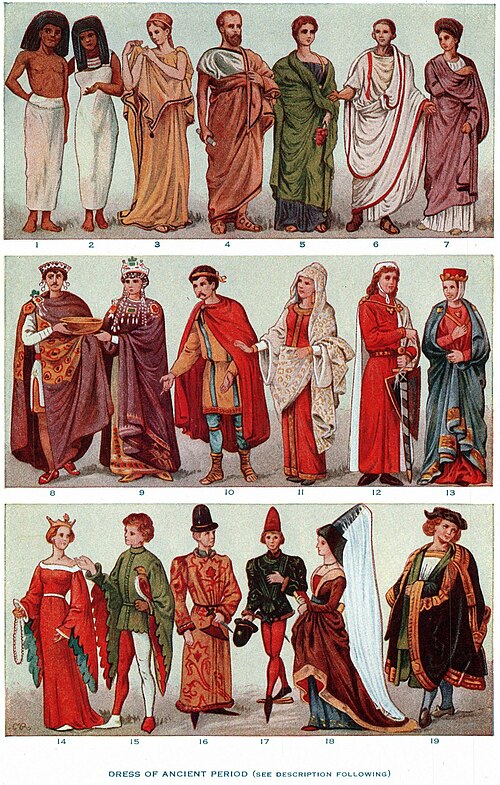Peplosnoun
(historical) An Ancient Greek garment, worn by women, formed of a tubular piece of cloth, which is folded back upon itself halfway down, until the top of the tube is worn around the waist, and the bottom covers the legs down to the ankles; the open top is then worn over the shoulders, and draped, in folds, down to the waist.
Peplosnoun
a garment worn by women in ancient Greece; cloth caught at the shoulders and draped in folds to the waist
Peplos
A peplos (Greek: ὁ πέπλος) is a body-length garment established as typical attire for women in ancient Greece by 500 BC (the Classical period). It was a long, rectangular cloth with the top edge folded down about halfway, so that what was the top of the rectangle was now draped below the waist, and the bottom of the rectangle was at the ankle.
Chitonnoun
(historical) A loose woolen tunic worn by men and women in Ancient Greece.
Chitonnoun
Any of various rock-clinging marine molluscs of the class Polyplacophora, including the genus Chiton.
Chitonnoun
An under garment among the ancient Greeks, nearly representing the modern shirt.
Chitonnoun
One of a group of gastropod mollusks, with a shell composed of eight movable dorsal plates. See Polyplacophora.
Chitonnoun
a woolen tunic worn by men and women in ancient Greece
Chitonnoun
primitive elongated bilaterally symmetrical marine mollusk having a mantle covered with eight calcareous plates
Chitonnoun
a long woollen tunic worn in ancient Greece.
Chitonnoun
a marine mollusc that has an oval flattened body with a shell of overlapping plates.
Chiton
Chitons are marine molluscs of varying size in the class Polyplacophora , formerly known as Amphineura. About 940 extant and 430 fossil species are recognized.




























